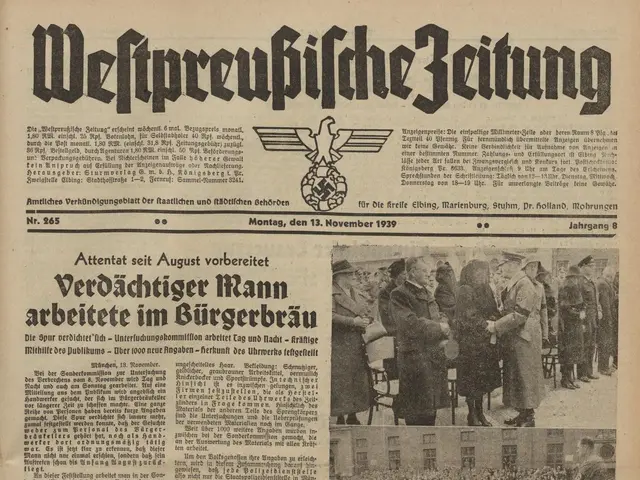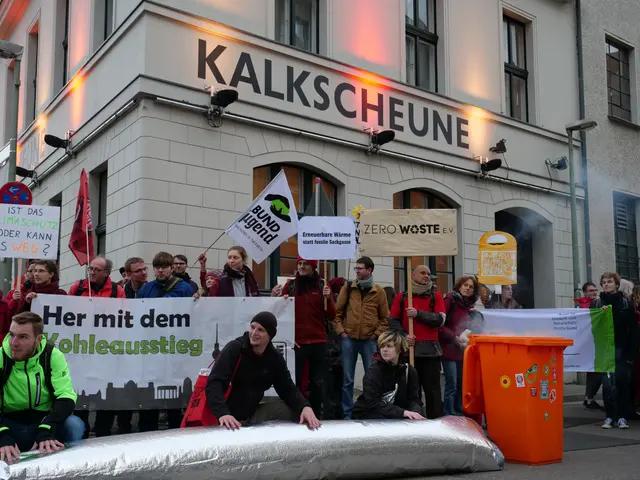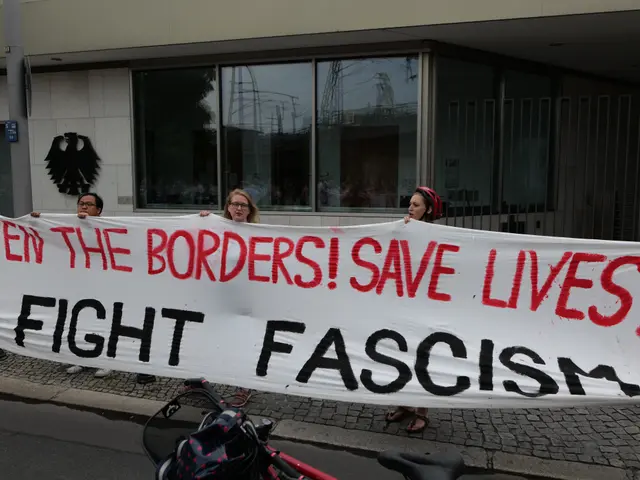Thousands of Boeing fighter jet workers initiate a work stoppage following the rejection of their proposed contract
In a turn of events that could impact Boeing's military aircraft production and its broader recovery from recent crises, more than 3,200 Boeing fighter jet assemblers in the St. Louis area and Illinois went on strike on Monday.
The current strike, which involves workers from Boeing's defense division, threatens production of key fighter jets such as the F-15, F/A-18 Hornet, the T-7 trainer, MQ-25 unmanned aerial refueling aircraft, and the future F-47 fighter jet. The strike arose after contract negotiations broke down, with the workers rejecting the latest offer from Boeing and union leaders (IAM District 837).
The union members, who assemble Boeing's F-15, F/A-18 fighters, the T-7 trainer, and the MQ-5, have expressed their dissatisfaction with Boeing's demand for an Alternative Work Schedule (AWS) allowing long consecutive shifts, and wage increases. The latest proposal offered a $0.50 hourly raise and pension improvements but left out AWS and did not fully address senior workers’ concerns. The union members also demanded a 20% wage increase over four years and a $5,000 signing bonus, which Boeing rejected as part of the final offer.
Boeing CEO Kelly Ortberg downplayed the strike's impact relative to prior labor disruptions, saying it involved fewer workers than the 2024 Seattle strike and that the company expects to manage through it without major issues. However, the strike raises concerns about potential delays and cost overruns amid Boeing’s ramp-up to meet military contracts, especially given the geopolitical context of preparing for potential conflicts involving China.
This strike is Boeing’s second major labor disruption in under a year, following a large strike in 2024 affecting commercial aircraft production in Washington state, which severely impacted the company’s finances and reputation.
In response, Boeing Defense is prepared for the work stoppage and will implement a contingency plan using non-union workers. Dan Gillian, Boeing vice president and general manager of the St. Louis facilities, expressed disappointment over the union's rejection of the offer. The union, International Association of Machinists and Aerospace Workers' District 837, believes the workers deserve a contract that reflects their skill, dedication, and critical role in national defense.
As the strike continues, the impact on the production and testing timelines, particularly for the major expansion of the St. Louis production line for the F-47 jet, remains uncertain. This is a developing labor dispute with significant implications for Boeing’s military aircraft production.
- The ongoing strike involving Boeing's defense division workers, specifically those assembling artifacts like the F-15, F/A-18 Hornet, T-7 trainer, MQ-25, and future F-47 fighter jets, has raised concerns within the world industry, especially finance and aerospace business sectors, given its potential impact on delivery timelines and cost implications.
- In the midst of geopolitical tensions, including the prospect of conflicts involving China, delays and cost overruns in Boeing's military aircraft production due to the strike could significantly affect the company's reputation and financial stability, as seen in the previous labor disruption affecting commercial aircraft production in Washington state.
- As global news outlets scrutinize Boeing's ongoing labor dispute, union leaders from International Association of Machinists and Aerospace Workers' District 837 have emphasized their members' demands for a fairer contract, including addressing concerns over Alternative Work Schedule (AWS), wage increases, and a 20% wage hike over four years, which Boeing has yet to fully accommodate.








